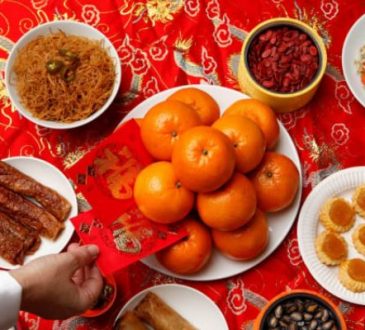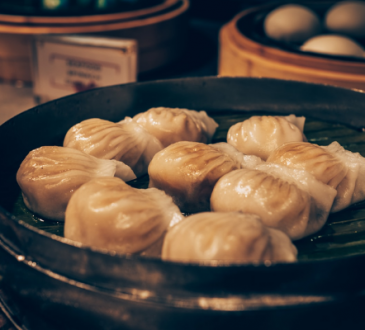Unveiling the Shelf Life of Chinese Food: How long is chinese food good fore
Chinese cuisine is renowned worldwide for its diverse flavors, vibrant colors, and aromatic spices. From savory stir-fries to steaming dumplings, the culinary landscape of China offers a treasure trove of delicacies. However, like any other type of food, Chinese dishes have a shelf life that varies depending on factors such as ingredients used, cooking methods, storage conditions, and the presence of preservatives. In this comprehensive guide, we delve into the intricacies of how long Chinese food remains good for consumption, providing insights and tips for ensuring food safety and optimal taste.
Contents
How long is Chinese food good for

Before delving into the specifics of Chinese cuisine, it’s essential to understand the concept of shelf life. Shelf life refers to the period during which a food product remains safe to consume while retaining its quality attributes such as taste, texture, and nutritional value. Factors such as microbial growth, oxidation, moisture content, and enzymatic reactions play crucial roles in determining the shelf life of any food item.
Factors Influencing the Shelf Life of Chinese Food:
- Ingredients: The freshness and quality of ingredients used in Chinese cooking significantly impact the shelf life of the final dish. Fresh vegetables, meats, seafood, and herbs contribute to longer shelf lives compared to processed or low-quality ingredients.
- Cooking Methods: Certain cooking techniques, such as deep-frying or stir-frying at high temperatures, can extend the shelf life of Chinese dishes by reducing microbial contamination and preserving texture. However, dishes that are heavily reliant on sauces or gravies may have shorter shelf lives due to moisture content and the potential for bacterial growth.
- Storage Conditions: Proper storage is paramount in preserving the freshness and safety of Chinese food. Refrigeration or freezing slows down microbial growth and enzymatic reactions, thereby extending the shelf life of cooked dishes and raw ingredients alike. Additionally, airtight containers and appropriate packaging help prevent moisture loss and contamination.
- Preservatives: Some Chinese dishes, particularly those intended for long-term storage or commercial distribution, may contain preservatives such as sodium benzoate or monosodium glutamate (MSG). While these additives can enhance flavor and prolong shelf life, their use should be moderated, considering potential health concerns.
Shelf Life of Popular Chinese Dishes:

Now, let’s explore the shelf life of some beloved Chinese dishes and ingredients:
- Rice: Cooked rice, a staple in Chinese cuisine, can typically be stored in the refrigerator for 3 to 4 days. To prevent the growth of bacteria, it’s crucial to cool cooked rice quickly and store it in an airtight container.
- Stir-fries: Stir-fried dishes, whether vegetarian or with meat, can generally be stored in the refrigerator for 2 to 3 days. Proper refrigeration helps maintain the texture and flavor of the ingredients.
- Dumplings: Whether steamed, boiled, or pan-fried, dumplings have a relatively short shelf life due to their moisture content. Freshly made dumplings can be stored in the refrigerator for 1 to 2 days or frozen for up to 1 month.
- Soups and Broths: Chinese soups and broths, such as hot and sour soup or wonton soup, can be refrigerated for 3 to 4 days. However, it’s essential to reheat them thoroughly before consumption to ensure food safety.
- Seafood Dishes: Fresh seafood dishes like steamed fish or shrimp stir-fries should be consumed within 1 to 2 days of preparation to maintain optimal taste and texture. Frozen seafood can be stored for longer periods, up to several months, depending on the type and quality.
Tips for Extending Shelf Life:

- Proper Storage: Store leftovers in airtight containers or resealable bags to prevent moisture loss and contamination. Label containers with the date of preparation to track freshness.
- Quick Cooling: Rapidly cool cooked dishes before refrigerating or freezing to minimize bacterial growth. Avoid leaving food at room temperature for extended periods.
- FIFO Method: Practice the “first in, first out” method when storing Chinese ingredients and dishes. Use older items before newer ones to minimize food waste and ensure freshness.
- Freeze for Longevity: Many Chinese dishes, especially sauces and stews, can be frozen for extended storage. Divide large portions into smaller servings for convenient thawing and reheating.
- Mindful Reheating: When reheating Chinese leftovers, ensure thorough heating to kill any bacteria present. Use a food thermometer to verify internal temperatures, especially for meat and seafood dishes.
- Cultural Considerations: In Chinese culture, the concept of “waste not, want not” underscores the importance of utilizing ingredients efficiently and minimizing food waste. Embracing this ethos can not only enhance sustainability but also encourage mindful consumption and storage practices.
- Quality Assurance: When purchasing pre-packaged or restaurant-prepared Chinese food, inquire about the ingredients used and any preservatives added. Opting for freshly prepared dishes with high-quality ingredients can ensure better taste and nutritional value while potentially extending shelf life.
By integrating these additional considerations into your culinary repertoire, you can further enhance your enjoyment of Chinese cuisine while maintaining food safety and freshness for longer durations.
Conclusion:
In conclusion, the shelf life of Chinese food varies depending on factors such as ingredients, cooking methods, storage conditions, and preservatives. By understanding these factors and implementing proper storage practices, you can enjoy delicious Chinese dishes safely and prolong their freshness. Whether it’s a hearty bowl of noodles or a fragrant stir-fry, savor the flavors of Chinese cuisine while prioritizing food safety and quality.



